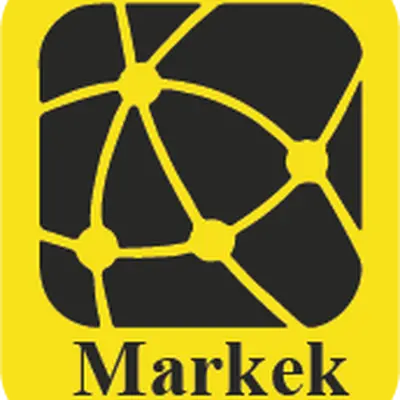We use cookies to personalise site content, social media features and to analyse our traffic. We also share information about your use of this site with our advertising and social media partners.
About Me
 Sakshi Verma
Sakshi Verma I am Sakshi Verma working in Markek International Certifications private limited Company as Business Manager in Gurgaon, India
Posted by - Sakshi Verma -
on - 6 hours ago -
Filed in - Business -
SASO Inspection Bodies SASO Approved Inspection Bodies -
9 Views - 0 Comments - 0 Likes - 0 Reviews

If you’re planning to export or import goods to Saudi Arabia, you’ve likely come across the term SASO Certification. But what exactly is it? And why are SASO approved inspection bodies so important? Let’s break it down in simple terms.
SASO stands for the Saudi Standards, Metrology and Quality Organization. It’s the governing authority responsible for setting and enforcing product standards in Saudi Arabia. SASO ensures that all imported goods meet the Kingdom’s safety, quality, and performance requirements before entering the market.
In short, SASO acts as a gatekeeper to ensure that every product sold in Saudi Arabia is safe for consumers and meets regulatory standards.
SASO certification is not just a formality—it’s a legal requirement. Without it, your products can be rejected at Saudi ports, leading to costly delays and potential losses.
For importers and manufacturers, obtaining SASO certification helps to:
Comply with Saudi import laws
Ensure product quality and safety
Build consumer trust
Prevent shipment rejections and fines
In other words, SASO certification is your passport to doing business in Saudi Arabia.
SASO-approved inspection bodies are third-party organizations accredited by SASO to conduct product inspections, testing, and conformity assessments. These organizations verify that a product meets the required standards before it’s exported to Saudi Arabia.
They serve as neutral evaluators—ensuring that every claim about your product’s quality, safety, and performance is backed by evidence.
There are three main types of SASO certificates issued through approved inspection bodies:
Issued for a specific product model after testing and documentation review. It confirms that the product complies with Saudi technical regulations.
Issued for every shipment. It ensures that all products in the shipment match the previously approved product certificate.
A voluntary mark for products that consistently meet SASO’s high-quality standards. It’s often used by trusted brands as a mark of reliability.
These organizations play a crucial role in the certification process. Their duties include:
Conducting product testing in accredited labs
Reviewing technical documents and compliance reports
Ensuring product labeling and packaging meet SASO requirements
Issuing conformity certificates (PCoC and SCoC)
They act as the link between exporters and SASO, simplifying the process for international businesses.
To become SASO-approved, an inspection body must meet strict requirements. These include:
Accreditation under ISO/IEC 17020 or 17065 standards
Proven technical expertise in product testing
Global recognition and compliance with international standards
Regular audits by SASO
This ensures that only competent and credible organizations are allowed to inspect and certify products.
Here are some well-known SASO-approved inspection bodies:
Intertek
SGS
TÜV Rheinland
Bureau Veritas
UL (Underwriters Laboratories)
QIMA (formerly AsiaInspection)
Each of these organizations offers SASO certification services in multiple countries, including India, China, Europe, and the Middle East.
You can find an updated list of SASO-approved bodies on the official SASO website or the Saber platform. When choosing one, consider:
Product category specialization
Country coverage
Turnaround time
Cost and transparency
Selecting the right inspection body can make the entire certification process smoother and faster.
Here’s how it typically works:
Identify applicable SASO standards for your product.
Choose an approved inspection body from the SASO list.
Submit product documentation, such as test reports and technical data.
Undergo product testing in an accredited lab if required.
Inspection body reviews documents and verifies compliance.
Receive the Product Certificate of Conformity (PCoC).
For each shipment, apply for an SCoC before export.
The following documents are usually required:
Product test reports
Technical datasheets
Factory audit reports (if applicable)
Bill of lading and commercial invoice
Packing list
Manufacturer’s declaration
Many exporters encounter issues such as:
Missing or incorrect documentation
Delays in lab testing
Miscommunication with suppliers
Non-recognition of certain international test reports
Working with a reliable SASO-approved inspection body helps minimize these challenges and ensures a seamless process.
Here’s why partnering with an approved body matters:
Faster certification approvals
Reduced risk of non-compliance
Professional guidance through each step
Hassle-free documentation management
Greater credibility with Saudi authorities
It’s a partnership that saves both time and money.
Before hiring any organization, verify their SASO approval status:
Visit the official SASO or Saber platform
Check the organization’s scope of approval
Request their accreditation certificate
This ensures you’re working with an authentic and trustworthy inspection body.
Navigating Saudi Arabia’s import regulations can be challenging, but working with a SASO-approved inspection body makes it simple. These experts ensure your products meet the required standards and enter the Saudi market without delays or penalties. Whether you’re exporting electronics, textiles, or machinery, choosing the right inspection partner is key to a smooth and successful certification journey.
1. What does SASO stand for?
SASO stands for the Saudi Standards, Metrology and Quality Organization—the authority responsible for product standards in Saudi Arabia.
2. How can I verify if an inspection body is SASO-approved?
You can check the official SASO or Saber website for the latest list of approved bodies.
3. Is SASO certification mandatory for all products?
Yes, most imported goods require SASO certification to enter the Saudi market legally.
4. How long does it take to get a SASO certificate?
The process usually takes 1 to 3 weeks, depending on product complexity and documentation readiness.
5. Can Indian exporters apply through SASO-approved bodies in India?
Yes, several SASO-approved inspection bodies operate in India, such as SGS, Intertek, and TÜV Rheinland.

“To assist disaster survivors by providing a source for them to come together in time of need, to aid in the listing of events, information and other forms of assistance, and continuing support through the recovery process.”
Share this page with your family and friends.